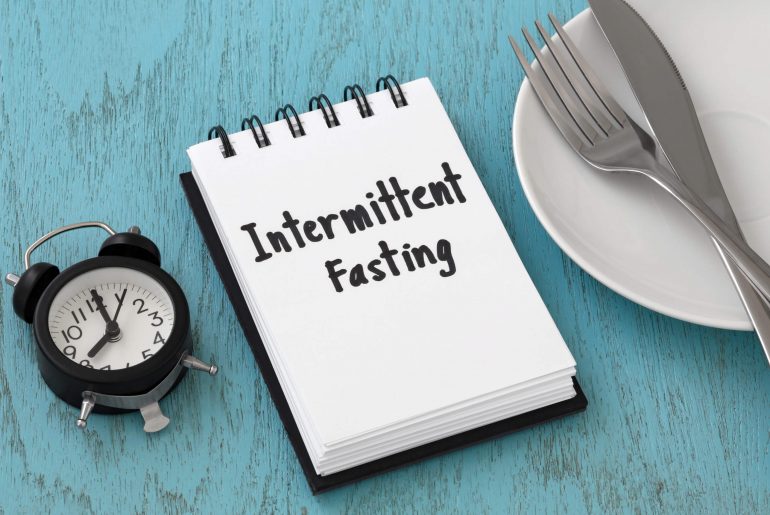Are you looking to intermittent fast but struggling with the hunger pangs? It’s normal to feel famished when fasting, but you can do a few things to minimize those hunger pains. We’ll go through Intermittent fasting in this post, including how it works and what to eat before a fast, as well as some pointers for making your fast as pleasant as possible.
What Is Intermittent Fasting
Intermittent fasting is a dietary pattern that cycles between periods of fasting and eating. It typically involves restricting your food intake for 16 hours or more, followed by an “eating window” of eight hours or less. This doesn’t mean you have to go without food for the entire 16 hours – you can still drink water, coffee, tea, and other calorie-free beverages during this time.
There are numerous variant intermittent fasting programs, but the most popular is probably the 16:08 plan, which entails fasting for 16 hours each day and eating all of your meals within an eight-hour window. Other common intermittent fasting schedules include 18:06 (fasting for 18 hours each day), 20:04 (fasting for 20 hours each day), and 23:01 (fasting for 23 hours each day, with a one-hour eating window).
If you’re new to intermittent fasting, starting off with a more moderate approach like the 16:08 plan, is best. Once you get used to this schedule, you can experiment with longer fasting periods if you want to.
Before we dive in, it’s important to note that there is no one-size-fits-all answer to this question. What works for one person may not work for another, so it’s important to experiment and find what works best for you. With that said, let’s take a look at a few general tips that can help make fasting a little easier on your stomach.
So, What Should You Eat Before a Fast? Here Are Some Tips:
One of the most important things before starting a fast is eating a nutritious meal. This will give your body the energy it needs to get through the day without feeling too famished. A good rule of thumb is to eat foods high in protein and healthy fats, as these will help keep you fuller for longer. Some examples of such foods include eggs, avocados, nuts, and seeds.
Another helpful tip is to drink plenty of water throughout the day. This will help keep your body hydrated and prevent you from feeling too thirsty during your fast. It’s also a good idea to avoid caffeine as it can make you feel more jittery and increase feelings of hunger.
If you find that you’re still struggling with hunger pangs during your fast, there are a few hacks that can help. One is to chew on sugar-free gum or mints, as this can help trick your brain into thinking you’re eating. Another is to drink a cup of hot tea or broth, as the warmth and liquid can help fill your stomach. Whatever you do, make sure you listen to your body and stop fasting if you feel faint or dizzy.
Break the Fast Carefully
After you’ve completed your fasting period, it’s crucial to break your fast gently. Consuming a large meal immediately can shock your digestive system and lead to unpleasant side effects like bloating and indigestion. Instead, start with something light and easily digestible. A smoothie with fruits, greens, and a protein source like Greek yogurt or a protein powder is an excellent choice. Soups, broths, fresh fruits, and steamed vegetables are good options.
Importance of a Balanced Diet
While it’s crucial to know what to eat before and after fasting, it’s equally important to maintain a balanced diet during your eating window. Ensure you’re eating various foods to get a range of nutrients. Include plenty of fruits, vegetables, lean proteins, whole grains, and healthy fats in your diet. It’s not just about when you eat; what you eat matters just as much.
Monitor Your Body’s Response
Intermittent fasting can offer numerous health benefits, including weight loss, improved metabolic health, and even potentially extending lifespan. However, it’s not for everyone. Some people might feel dizzy or irritable during fasting periods, while others might find it hard to concentrate. These are signs that the body is not responding well to fasting. If you experience any adverse effects, it’s best to stop and consult a healthcare professional.
Remember, intermittent fasting is not a magic bullet for health. It’s a tool that can be beneficial when used properly, correctly, and in the context of a healthy, balanced diet. Always listen to your body and adjust your fasting and feeding schedules as needed.




